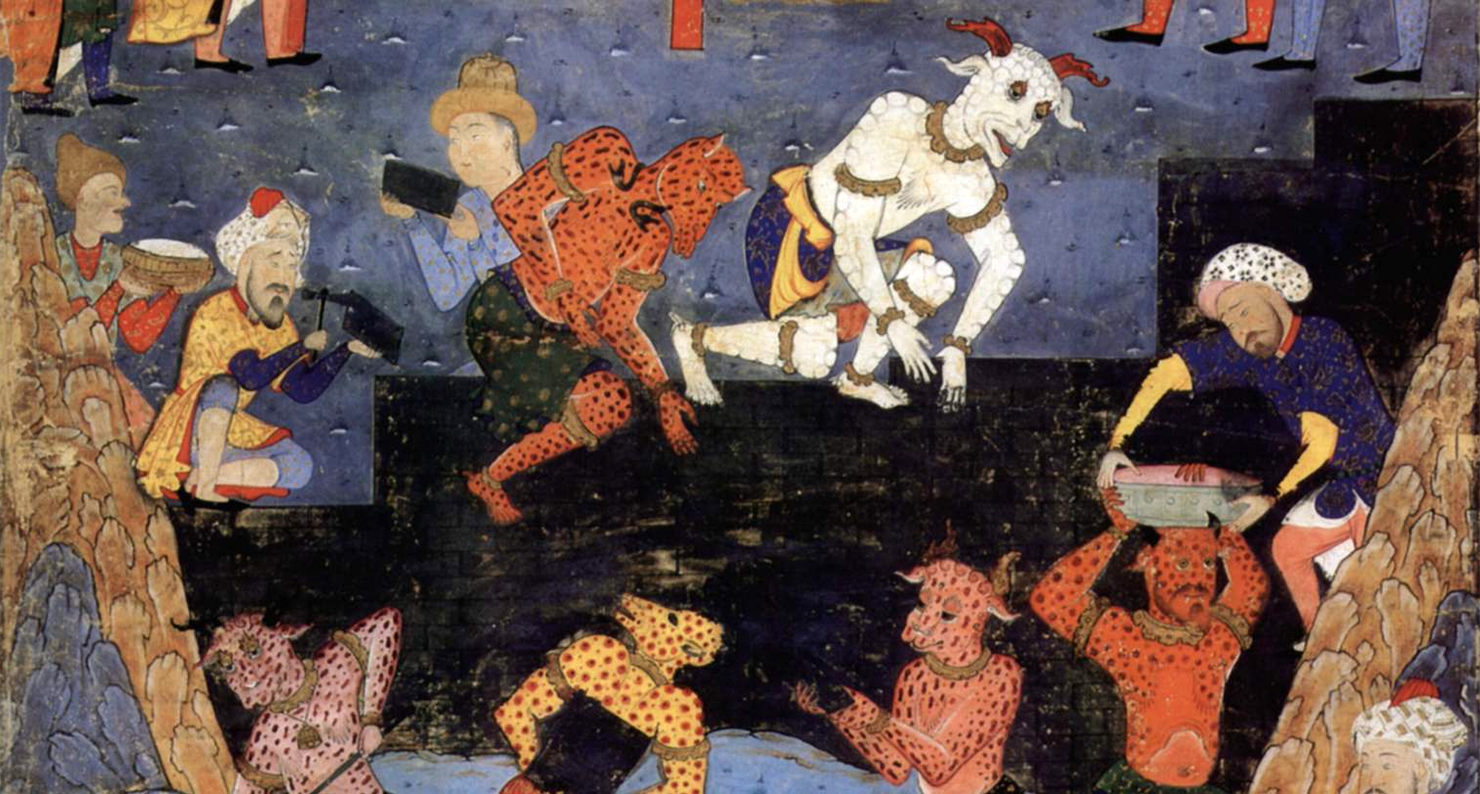Jinn in contemporary Islam
Today, many Muslims believe the Jinn continue to interact with humans, often revealing themselves by whispering in one’s ear, striking someone, or entering and possessing a person’s body. It is believed that humans are most vulnerable to attacks by Jinn during instances of blood loss, heightened emotional states and when neglecting one’s duty to pray.

Jinn building a wall for Dhul-Qarnayn to fend off the Yajuj and Majuj people (c. 1550).
Western medical practioners often lack detailed knowledge of Islamic culture and religious beliefs, which can make some Muslims reluctant to seek help for distressing voices from UK mental health services.
Interestingly, research suggests that in some Muslim communities, medication and talking therapy for distressing voices is most effective when combined with traditional Islamic methods used to eradicate or establish peace with Jinn. These include:
- Prayer
- Reciting the Quran
- Induced Trance
- Diet
- Dance
- Pilgrimage
In Islam there are two predominant reasons as to why people might hear voices. The first is as a reaction to distressing or traumatic events that may not have been processed or healed. The second, which could be as well as or separate, is that of hearing Jinn. Muslims believe that Jinn are another creation of God. They are made from fire, and apart from their physical form, have similar properties to human beings such as free will, families, being born and dying. There are many reasons a person may start hearing Jinn from benign reasons to the demonic. However, from a religious perspective neither creations are meant to get involved with each other in any way.
In both cases of when a person may start hearing voices, the Islamic perspective would be that it is part of the trials of life. Muslims believe that this life is a test, and that we will be tested with many things such as loss and poverty, death and ill health. Success is gained by holding on to faith in God and following the religious texts and teachings. The majority of the religious texts and teachings are all about how to survive life’s difficulties and get through these really challenging tests, in order to gain peace in this life and the next.
The trials of life are sent for two reasons: 1) to purify yourself through challenges and grow to become the best version of yourself; and 2) to build a closer connection to God through needing His help. Both of these reasons could also be termed a spiritual ‘awakening’, ‘crisis’ or ‘emergence’. When Muslims start to experience distressing symptoms such as hearing voices and turn to their faith for help and support, they often become more devout in their worship and practice of the religious duties.
Find out more
Read
Anastasia Lim, Hans W. Hoek, Samrad Ghane, Mathijis Deen and Jan Dirk Blom (2018). The attribution of mental health problems to Jinn: An explorative study in a transcultural psychiatric outpatient clinic. Frontiers.
